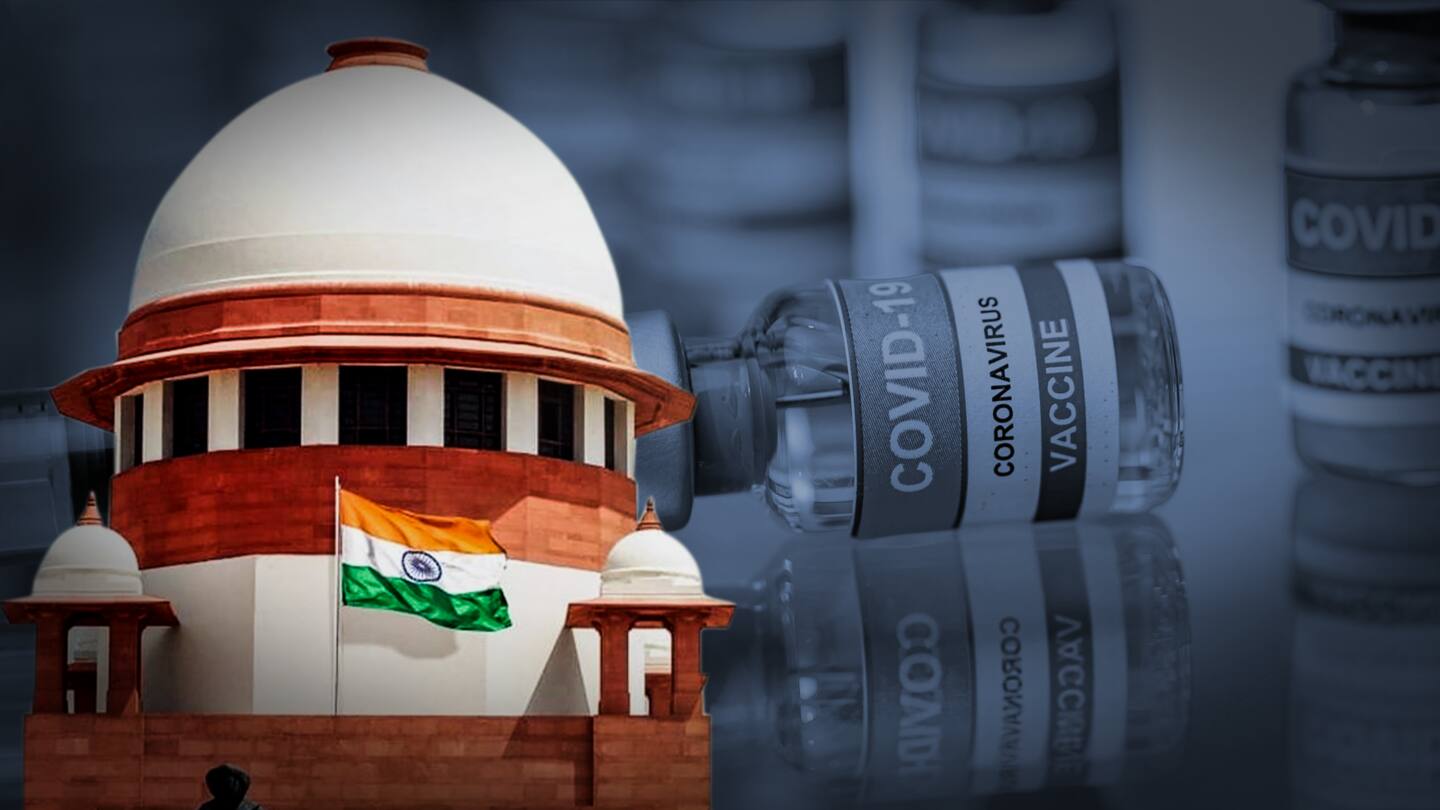
'No judicial interference': Centre tells Supreme Court on vaccine policy
What's the story
The central government on Sunday defended its coronavirus vaccination policy in an affidavit submitted to the Supreme Court of India.
It said the policy has been framed with help from subject experts and to ensure an equitable distribution of vaccines across India, adding that "no interference" by the court is needed.
The top court has adjourned the hearing into the matter until Thursday.
Details
'Overzealous intervention may lead to unintended consequences'
"In the context of a global pandemic, where response and strategy of the nation is completely driven by expert medical and scientific opinion, there is little room for judicial interference," the Centre reportedly told the court.
"Any overzealous, though well-meaning, judicial intervention may lead to unforeseen and unintended consequences," the government further said in its affidavit.
Affidavit
'Differential pricing will help boost production'
The Centre said a differential pricing policy has been formulated to incentivize vaccine manufacturers to scale up production and also to attract new vaccine manufacturers from abroad.
"Differential pricing is based on the concept of creating an incentivized demand for the private vaccine manufacturers in order to instil a competitive market resulting in higher production of vaccines," it stated, according to Bar & Bench.
Policy
What is the Centre's new vaccine policy?
The Centre has allowed the two approved vaccine manufacturers in India to charge a higher price from states and private facilities.
The Serum Institute has set a price of Rs. 300 for states and Rs. 600 for private hospitals while Bharat Biotech's vaccine costs Rs. 400 to states and Rs. 1,200 to private hospitals.
Both the companies charge Rs. 150 per dose from Centre.
Criticism
SC last week asked the Centre to reconsider the policy
However, the Centre has received severe criticism for the differential pricing of vaccines, with Opposition parties like the Congress and the Aam Aadmi Party (AAP) accusing it of "profiteering" in the middle of a crisis.
The Supreme Court had last week directed the Centre to reconsider the pricing policy to ensure that it does not violate laws pertaining to equality and protection of life.
Vaccines
What are the two approved vaccines in India?
Currently, India has two approved vaccines:
1) Covishield, developed by Oxford University and AstraZeneca and manufactured by the Pune-based Serum Institute of India.
2) COVAXIN, developed by the Indian firm Bharat Biotech.
A third - Russia's Sputnik V vaccine - will be rolled out soon, the government has assured.
India has administered over 17 crore doses so far, but the pace has been criticized.
Information
The COVID-19 situation in India
India has been gripped by a dreadful second wave of the coronavirus pandemic amid shortages of necessary medical equipment such as hospital beds, oxygen cylinders, and vaccines. In the last 24 hours, India registered 3.66 lakh fresh coronavirus cases and 3,754 deaths.